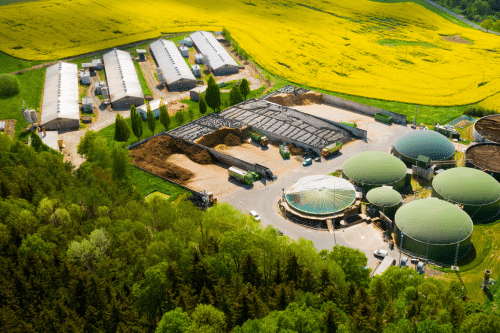Tips for agricultural waste management

Agricultural waste management is a critical aspect of farming in the UK. It involves the proper handling, storage, and disposal of waste generated by agricultural activities. The effective management of agricultural waste is essential to protect the environment, ensure compliance with regulations, and promote sustainable farming practices. In this article, we will provide some advice on how farmers in the UK can manage their agricultural waste.
- Identify the types of agricultural waste generated on your farm: The first step in effective agricultural waste management is to identify the types of waste generated on your farm. This may include animal waste, crop residue, packaging materials, and agricultural chemicals. By identifying the types of waste, you can develop a waste management plan that addresses the specific needs of your farm.
- Develop a waste management plan: Once you have identified the types of waste generated on your farm, you can develop a waste management plan. This plan should include procedures for handling, storing, and disposing of waste, as well as strategies for reducing waste generation. Your waste management plan should also address compliance with regulations, such as those related to water quality and air emissions.
- Use sustainable farming practices: Sustainable farming practices can help reduce waste generation and promote environmental stewardship. These practices may include crop rotation, integrated pest management, and conservation tillage. By implementing sustainable farming practices, you can reduce the amount of waste generated on your farm and minimize your environmental impact.
- Properly store agricultural waste: Proper storage of agricultural waste is critical to prevent environmental contamination and protect public health. Animal waste should be stored in a designated area, away from water sources, and covered to prevent runoff. Crop residue should be composted or stored in a designated area to prevent erosion and nutrient loss. Agricultural chemicals should be stored in a secure location, away from animals and children.
- Dispose of waste properly: Disposal of agricultural waste should be done in accordance with local regulations. Animal waste should be properly composted or spread on fields as fertilizer. Crop residue can be used for mulching or animal feed. Agricultural chemicals should be disposed of through an approved hazardous waste disposal program.
- Maintain equipment and infrastructure: Proper maintenance of equipment and infrastructure is critical to prevent spills and leaks that can lead to environmental contamination. Regular inspections and repairs can prevent equipment failures and ensure that waste storage and disposal facilities are in good working order.
Speak to our team about Agricultural Waste Management
Effective agricultural waste management is essential for sustainable farming practices and protecting the environment. By identifying the types of waste generated on your farm, developing a waste management plan, using sustainable farming practices, properly storing agricultural waste, disposing of waste properly, and maintaining equipment and infrastructure, farmers in the UK can effectively manage their agricultural waste.
By doing so, farmers can promote sustainable practices that protect the environment, comply with regulations, and ensure the long-term success of their farming operations. If you would like to know more about the agricultural waste management services we provide, do not hesitate to get in touch with our experienced team. We have over 25 years of experience in providing waste management services throughout the UK.
To speak with a member of our team simply fill in our contact form and we will be in touch as soon as possible.
